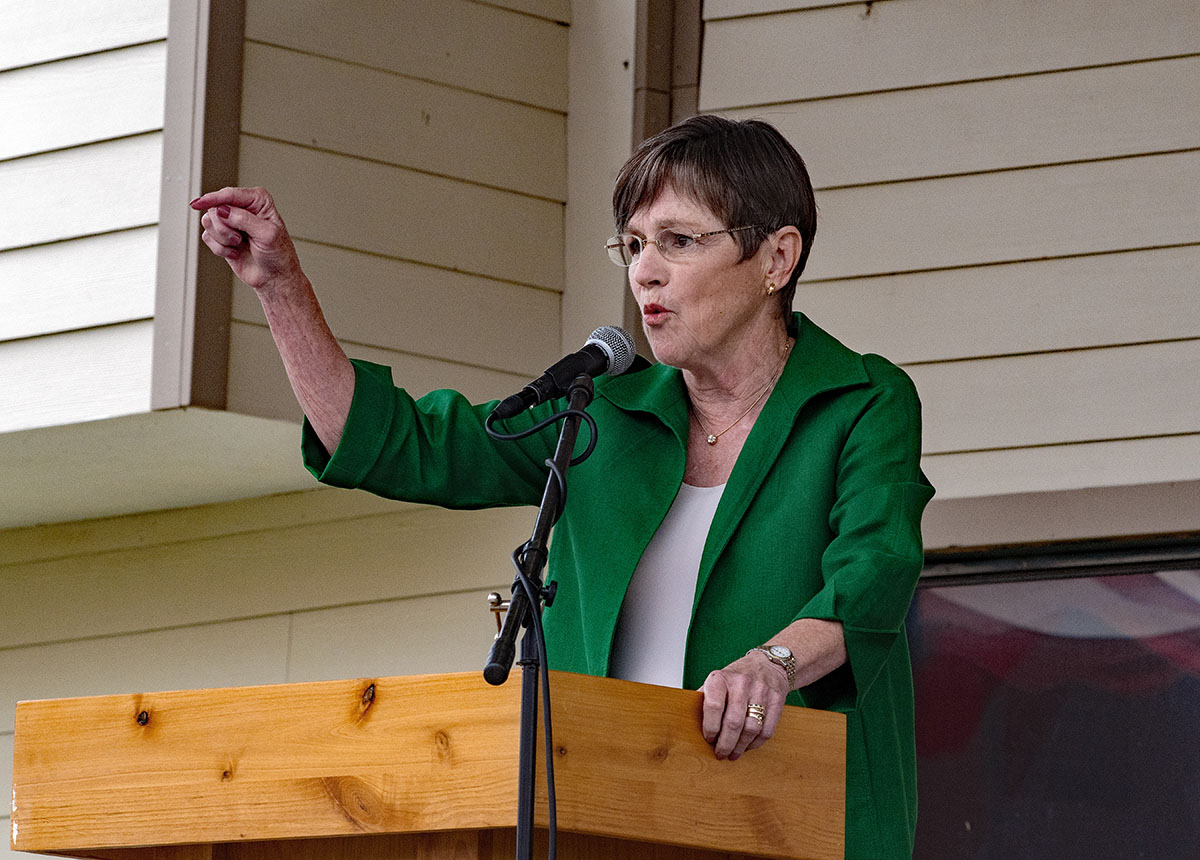The Kansas Justice Institute argues that a legislative overhaul of the Kansas Emergency Act, known as Senate bill 40, should be “celebrated, not criticized.”

“Without it, everyday citizens were left without a voice, and without an opportunity for a meaningful and timely hearing,” Samuel MacRoberts, litigation director for KJI wrote in a legal brief to the Kansas Supreme Court. (Kansas Policy Institute owns both KJI and the Sentinel.)
The amicus brief defends SB 40 to the state’s highest court following a ruling from a Johnson County District Court Judge that deemed it unconstitutional.
In the case now before the Kansas Supreme Court, two parents of students in the Shawnee Mission School District sued seeking mask exemptions for their students. In his opinion, Judge David Hauber, wrote that the law is “unenforceable” and violated the separation of powers between the courts and the legislature.
The Kansas Supreme Court issued a stay of the decision allowing authorities to operate under SB 40 pending the top court’s decision in the case.
SB 40 ‘appropriate legislative response,’ brief says
According to MacRoberts’ brief to the high court, SB 40 is an appropriate legislative response to Kansas’s outdated public health laws. Prior to the legislature’s KEMA overhaul, Kansas law allowed local health officers to prohibit gatherings and use all known measures to prevent the spread of disease. The law also provided local health officers the authority to issue quarantine orders, outlining a process that allowed individuals to contest quarantines within 72 hours.
“By the time COVID-19 hit Kansas–in March 2020 — the Legislature had granted local health officers incredibly broad powers,” the brief reads.
In practice, however, the law limited the ability of businesses and others impacted by public gathering limits and other measures to initiate a hearing. During the early days of the pandemic, health officers wielded their powers “aggressively, frequently, and at times, unreasonably.”
The brief lists instances in which local health authorities banned car parades, required dentists, restaurants, and other businesses to disclose the names of their patrons, patients, and clients to local authorities upon demand, asked restaurants to screen their employees’ travel history and take their temperatures, capped religious gatherings, forced tattoo parlors to turn away walk-up customers, demanded that restaurants and bars stop serving alcohol at 11 p.m., banned dancing, and closed gym locker rooms.
“Businesses impacted by these health orders had no choice but to comply, or risk fines, prosecution, or immediate and potentially permanent closure, regardless of their COVID-19 procedures and protocols,” MacRoberts wrote.
KEMA overhaul provided due process
KJI sued Douglas County officials on behalf of Peach Madl over the lack of due process. Madl, a Lawrence bar owner, claimed a Douglas County health order that reduced her business hours even after she took steps to mitigate COVID in her business. The federal lawsuit sought due process hearings. Kansas Justice Institute moved to dismiss Madl’s case when SB 40 became law.
According to MacRoberts, the suit exposed the need for due process in health orders, and the legislature responded with SB 40. “The right to be heard should not evaporate in the middle of a pandemic. To paraphrase the United States Supreme Court, the grandest temptations to abandon constitutional guarantees is during an emergency,” MacRoberts said.
SB 40 provided a timely hearing process for Kansans affected by local health orders. However, Judge Hauber took particular issue with tight judicial timelines and local hearing processes created by the new law. He noted that local officials admitted that the burden of local hearings and potential lawsuits required easing mask mandates and other restrictions.
“SB 40 actually hobbled local pandemic measures by ensuring that lawsuits would be filed, aided by swift court action,” Hauber wrote in his judicial opinion. “Many units of government simply capitulated under the pressure.”
MacRoberts responded in his brief that if that’s true, “then perhaps that is a better indicator that the public health orders were too broad or too arbitrary, to begin with.”



